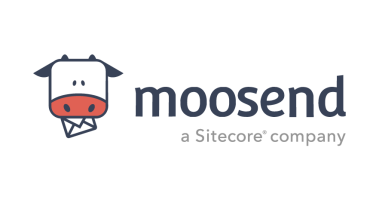
Forget creating a moment and start a movement. That was the message from many of the speakers on stage and from the Lion award-winning work at the Cannes Lions Festival this year. Creatives must do more than manufacture energy around a great idea, they must craft the idea itself.
This concept of creative business transformation was one of the major themes of the festival. And it was specifically sustainable business transformation that dominated the winning work and the presentations.
Resonating with both consumers, brands and agencies in a post-pandemic reset, sustainability was a major driver. But speakers urged the audiences to do more than come up with a good idea or an idea that does good. It needs to have a strong social impact to deliver profitable growth and permanent change. It needs to be more than ‘one brief campaign’. It needs to start a movement, not a moment.
Impactful transformation
The Creative Business Transformation Lions celebrated their second year in 2022. Introduced to acknowledge the creativity that drives businesses forward, this award recognises creative thinking that changes how businesses organise themselves, how people work and how customers engage with them.
Ronald Ng, global chief creative officer, at the agency MRM and this year’s jury president for the Creative Business Transformation Lions, says that in judging the awards, his jury looked for elements including bravery, complexity, magnitude and longevity, as well as craft and elegance in execution. For the big winners, they wanted to see impact too. Ng adds: “You transform – what is the effect of that? The impact and the measurability is super important.”
These elements were found across the winners. The Grand Prix went to ‘Piñatex’ for Dole Sunshine Company + Ananas Anam. Ng says of the winner: “Piñatex is a perfect example of how a business can transform itself by creatively connecting the dots. Dole identified waste as a business problem, found a partner to help solve it and transformed its operations to improve and scale the offering.
“Taking things a step further, it found more partners to sustain and commercialise it to create new revenue for Dole, Ananas Anam and farmers. And Dole earning $100m from Piñatex is proof that creative transformation and growth go hand in hand. Waste to profit. That’s bloody creative.”
Radical collaboration
Rupen Desai, global chief marketing officer for Dole, recalls how a transformation of this scale and complexity came about through collaboration between teams, from supply chain, procurement and finance through to innovation, product development, marketers and creatives.
Chrissie Hanson, global chief strategy officer at the creative agency OMD and Creative Strategy Lions jury president calls this approach “radical collaboration”.
Collaboration was also a key driver of the success for Visit Sweden’s ‘Discover The Originals’ campaign, which scooped up Silver in the Creative Strategy Lions. The agency Forsman & Bodenfors Gothenburg says: “The fact that our agency sees strategy and creative as one process, where planners and creatives work tightly together from day one, was definitely beneficial in the making of this campaign.”
More diverse skills and backgrounds on a team can bring a wider array of ideas to the table. This leads to creative transformation within all areas of the business, from supply chain through to customer demand and digital commerce.
Experience first
On stage at the festival, we heard from Japanese fintech Minna Bank and the design and innovation consultancy Fjord, which is part of Accenture Song. They revealed how Minna Bank boldly set a vision to redesign an 150-year-old industry to become a new kind of bank for digital natives.
The key, they said, was to shift to the future and change the approach. Business transformation shouldn’t be about thinking business first and then experience, it should be experience first and then business. This experience, which can work across all types of business, needs to culturise, be frictionless and be for everyone.
Sustainable transformation
Elsewhere, we were shown that to deliver sustainable business transformation brands need to ask themselves a series of questions. Do I have permission to be in this space? Can we help solve problems elsewhere? How can we use partnerships to fix the whole ecosystem? Does this idea have durability?
Alessandro Manfredi, CMO at Dove, talked of “purpose fatigue”, with businesses needing to deliver social impact authentically to drive this transformation. Marc Pritchard, chief brand officer at Procter & Gamble, agreed. He said the challenge for brands is to be discerning.
“Choose where you can have the most impact, make a genuine difference but also keep economic growth front of mind and be a force for growth, to be a force for good,” he said.
How creativity can deliver transformational business change
What we learnt at Cannes Lions is that creativity can be applied beyond brand communications to deliver transformational business change. How businesses are set up to encourage and inspire collaboration, to bring multi-disciplinary teams together to tackle business challenges using the key facets of creativity, and to lead with purpose and focus on problem solving for people’s day-to-day challenges and long-term goals are all essential for any company looking to creatively, bravely and sustainably transform for success.
Read more insights and learnings around six critical themes in the official Cannes Lions Wrap-Up Report, which is out now.

Forget creating a moment and start a movement. That was the message from many of the speakers on stage and from the Lion award-winning work at the Cannes Lions Festival this year. Creatives must do more than manufacture energy around a great idea, they must craft the idea itself.
This concept of creative business transformation was one of the major themes of the festival. And it was specifically sustainable business transformation that dominated the winning work and the presentations.
Resonating with both consumers, brands and agencies in a post-pandemic reset, sustainability was a major driver. But speakers urged the audiences to do more than come up with a good idea or an idea that does good. It needs to have a strong social impact to deliver profitable growth and permanent change. It needs to be more than ‘one brief campaign’. It needs to start a movement, not a moment.





